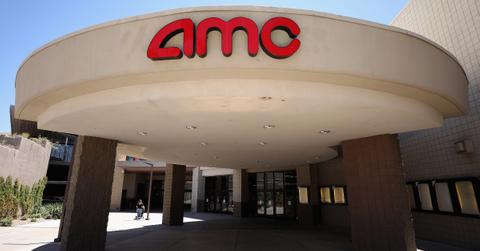Who Owns AMC Theatres Now and Will Amazon Buy the Company?
Who owns AMC Theatres now and what lies ahead for the cinema chain company as streaming continues to challenge moviegoing? Will Amazon buy AMC?
March 16 2022, Published 10:01 a.m. ET
AMC Entertainment, which runs AMC Theatres, is the world’s largest cinema chain company. The company managed to survive the COVID-19 pandemic, which was a near-death blow for the global cinema industry. Who owns AMC Theatres now and what lies ahead for the cinema chain company as streaming continues to challenge moviegoing?
AMC Entertainment was formed in 1920 when Maurice, Edward, and Barney Dubinsky bought the Regent Theatre in Kansas City. In 1961, it was renamed American Multi-cinema by the then CEO Stanley Durwood.
China’s Wanda Group acquired AMC in 2012.
In 2012, China’s Wanda Group acquired AMC for $2.6 billion. The group took AMC public the next year but continued to hold a majority stake. AMC Entertainment has made several acquisitions in its history. In 2016, it acquired Carmike Cinemas. The company also acquired Odeon & UCI Cinemas, which was the largest cinema chain company in the U.K. and Ireland.
Wanda Group exited AMC in 2021.
For Wanda Group, the AMC investment didn't turn out to be fruitful in the initial years. In 2021, the Group exited AMC and capitalized on the Reddit fuelled rally. Since Wanda Group has exited AMC, it isn't a Chinese-owned company anymore.
Who owns AMC Theatres now?
Since AMC is a publicly-traded company, it's owned by the stockholders now. The company is owned by both institutional and retail investors. Looking at the shareholding pattern, Vanguard is the largest investor in AMC and holds a 9.11 percent stake. BlackRock comes second with a 6.6 percent stake followed by State Street Capital Advisors with a 2.57 percent stake.
According to the data compiled by Fidelity, insiders own a 6.3 percent stake in AMC. The institutional stock and mutual fund ownership is 34.4 percent while 4.9 percent stake is held by mutual funds.
Retail investors own the bulk of AMC
Retail investors own 54.4 percent of AMC Entertainment. The figure is high compared to other U.S. companies. While most institutional investors exited the stock amid the Reddit frenzy, retail investors, many of whom proudly call themselves “apes,” hold most of AMC. Most of the retail stockholders have continued to hold AMC stock despite the slump.
AMC Entertainment CEO Adam Aron said that retail investors own 90 percent of the company. While this might seem at odds with the data, it's because most institutional investors aren't holding AMC by choice but because of its inclusion in indices. Aron has also praised the retail stockholders for their support and rewarded them with NFTs and free popcorn at the theatres.
Amazon doesn't own AMC — yet.
There have been rumors that Amazon intends to buy AMC. However, Amazon doesn't own AMC and might never do. While many see AMC as a good fit for Amazon’s streaming business, the e-commerce giant might use the money to repurchase its shares.
Debt holders also own AMC.
AMC has a huge debt pile, which only ballooned during the COVID-19 pandemic. The company owes over $5 billion and debt in case of bankruptcy, they would have the first charge on the company compared to the stockholders. Also, if AMC converts debt to equity as part of the restructuring, debtholders would end up owning a major chunk of AMC.
What’s the outlook for AMC?
AMC should continue to see a near-term surge in revenues as cinema-going improves from the lows. However, in the long term, moviegoing faces structural headwinds from streaming. While streaming might not kill moviegoing completely, it would lead to structural demand destruction.


